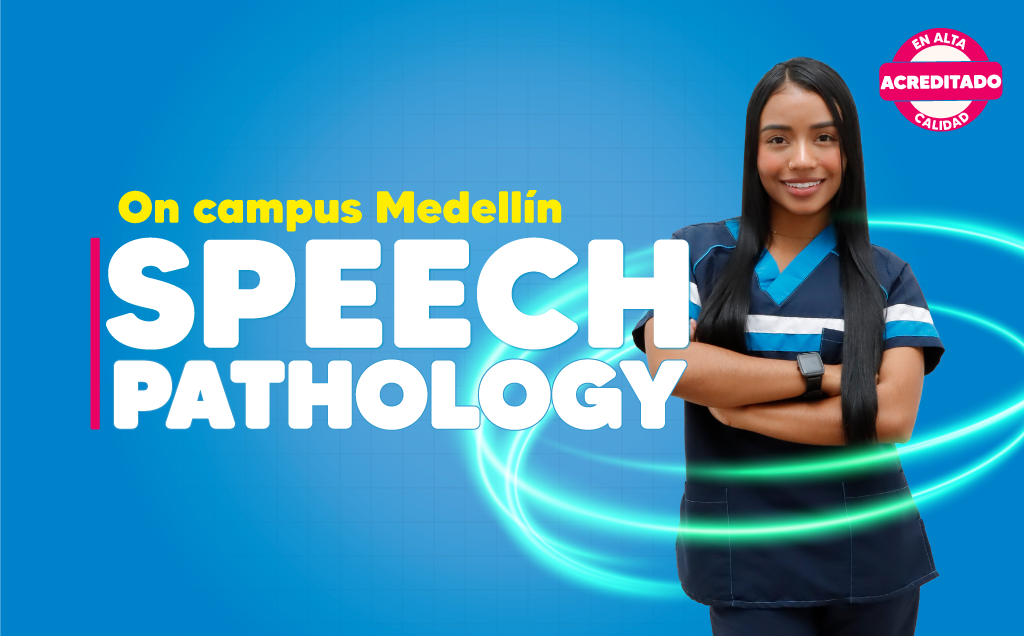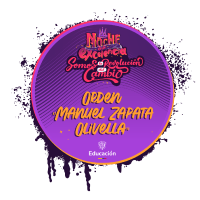What is Speech Pathology?
Speech-language Pathology and Audiology is a health profession that deals with human communication, its disorders and variations. This communication is manifested in the person’s ability to relate with others through skills in speaking, listening, reading and writing. However, these skills may get to be diminished or altered by biological causes, psychological or social issues affecting the well-being and the quality of life of each person, triggering communication disorders.
In this sense, a phonoaudiologist plays a professional role in the health area, as well as in educational and social welfare. Diagnoses communicative actions are performed in terms of the population needs, such as evaluating, identifying, and intervening the disorders and alterations of the communication in a timely and efficient manner. It is also the interest of Speech-Language Pathology and Audiology, the communication for the hearing impaired, and therefore recognizes that this community presents a variation in its communication and thus requires Phono audiological support in order to ensure their communicative well-being.
SNIES 1878
RC No. 000648 of January 26, 2024
Validity: 7 years
Duration: 10 semesters
Number of credits: 172
Admission frequency: Semester-based
Modality: In-person
Degree awarded: Speech Therapy
2026 fee: $6.854.458
High Quality Accreditation: Resolution No. 004913, April 16, 2024
Valid for 6 years
Professional profile:
The Speech Pathologist at the María Cano University Foundation is a professional with critical thinking, problem-solving skills, social commitment and glocal vision, entrepreneurs and innovators, who focus their actions on communicative well-being, recognizing both the individual variables and those of the environment that influence this. He has extensive knowledge of human communication, its alterations and variations, from the psychobiological areas of language, hearing, speech, voice and oral-pharyngeal function, and its approach through the professional domains of:
• Promotion of communicative health
• Prevention of communication disorders
• Evaluation and diagnosis of communicative health conditions
• Integral rehabilitation
• Follow-up and monitoring of communicative health programs and their determinants
• Research, entrepreneurship and innovation
The above, seeking to contribute to the development and transformation of people, communities and organizations, from the identification and addressing of their communication needs.
Occupational profile
Phono audiologists perform in the sectors of health, education, industry and social welfare, developing welfare activities (assessment, determination of communicative diagnostics and therapeutic intervention), promotion, prevention, counseling, administration, research and consulting. In the same manner, It is also possible to exercise through teaching in higher education programs related to such area at formal or non-formal level.
Admission Requirements Undergraduate Programs
Admission requirements New In-person and Virtual Undergraduate Applicant
To enter any of the undergraduate programs offered by María Cano, the new applicant must complete the following procedure:
- Fill out the online registration form
- Make the payment of undergraduate registration fees $148.921
- At the end of the registration form, upload to the platform the following documents one by one (in PDF format) as indicated at the end:
- Photocopy of the high school degree certificate or diploma, if you have not yet completed grade 11, original study certificate, issued by the school valid for no more than one month.
- Results of the ICFES tests (Saber 11), if you do not have the results you can attach the citation to the test.
- A legible photocopy of the identity document (enlarged).
- A 3×4 size photo, light blue background.
- Documents are not received physically unless required during the admission process.
- Print the registration payment form at the end of online registration or make payment through PSE.
*The Foundation reserves the right to admit and assign study schedules to students.
Adriana Marcela Rojas Gil
Alejandra Arboleda Ramírez
Alexandra Flórez Londoño
Ana María Pérez Naranjo
Andrés Felipe Sanmartín Sanmartín
Andrés Fernando Delprado Aguirre
Christian Andrés Acosta Pérez
David Ramírez Quintero
Diana Marcela Mosquera Acosta
Florian Augusto Kirby Baldi
Gislena María Ortiz Herrera
Héctor Iván Guerrero Jiménez
Jeimy Katherine Rodríguez Ortiz
Jenny Paola Ojeda Casallas
John Steven Hurtado Sánchez
Julián David Aristizábal Rojas
Laura Jimena Bulla Castañeda
Liliana María Álvarez Areiza
María Alejandra García Franco
María del Pilar Hincapié Arcila
Maria Isabel Mazo Velasco
María Tatiana Ramírez Lozano
Miguel Antonio Vargas García
Miriam Lizeth Muñoz Henao
Natalia Alejandra Hernández Garzón
Nelson Iván Cupitra Vergara
Sandy Paola Meza Martínez
Tatiana Medina Cortés
Verónica María Aristizábal
Ximena Yadira Perdomo Quiñonez
Yeiler Alberto Quintero Barco
Curriculum
Study plan
Semestres
| Semester I | |
| Mathematics I | 2 |
| Communicative skills | 2 |
| ICT Management | 2 |
| Human development | 2 |
| María Cano Chair | 2 |
| Introduction to health | 2 |
| Morphophysiology I | 3 |
| Introduction to speech therapy | 2 |
Credits 17
| Semester 2 | |
| Mathematics II | 2 |
| Critical reading | 2 |
| Biochemistry | 3 |
| Morphophysiology II | 4 |
| Theories of communication and language | 2 |
| Linguistic foundations | 3 |
| Head and neck anatomy | 2 |
Credits 18
Credits
| Semester 3 | |
| Statistics | 2 |
| Epistemology | 2 |
| Neurophysiology | 4 |
| Public health | 4 |
| Communication evaluation and diagnosis | 3 |
| Applied Linguistics | 3 |
Credits 18
Credits
| Semester 4 | |
| Research foundations | 2 |
| Citizen skills | 2 |
| Epidemiology | 2 |
| Technology and innovation in health | 2 |
| Developmental psychology | 2 |
| Speaks | 4 |
| Language development | 3 |
Credits 17
Credits
| Semester 5 | |
| Projects formulation | 3 |
| Elective I | 2 |
| Geopolitics | 2 |
| Ethics | 2 |
| Disability and inclusion | 2 |
| Voice | 3 |
| Children’s language | 3 |
| Audiology I | 3 |
Credits 20
Credits
| Semester 6 | |
| Project evaluation | 3 |
| Oral pharyngeal function I | 3 |
| Reading and writing | 4 |
| Audiology II | 3 |
| Hearing and communication health | 2 |
| Communication of the deaf person | 3 |
Credits 18
Credits
| Semester 7 | |
| Practice I | 4 |
| Security and health at work | 3 |
| Oral pharyngeal function II | 3 |
| adult language | 4 |
| Audiology III | 3 |
Credits 17
Credits
| Semester 8 | |
| Elective II | 2 |
| Practice II | 8 |
| Scientific evidence in speech therapy | 2 |
| Deepening line I | 3 |
Credits 15
| Semester 9 | |
| Innovation and creativity | 3 |
| Health Services Administration | 2 |
| Practice III | 8 |
| Deepening line II | 3 |
Credits 16
| Semester 10 | |
| Entrepreneurship | 3 |
| Elective III | 2 |
| Practice IV | 8 |
| Deepening line III | 3 |
Credits 16
Note: María Cano’s undergraduate and graduate academic programs may include classes on Saturdays.


